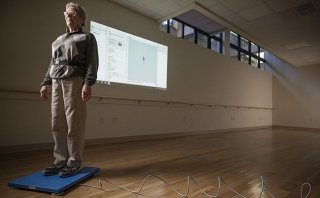
Douglas P. Kiel, MD, MPH
- Senior Scientist
- Professor of Medicine, Harvard Medical School and Beth Israel Deaconess Medical Center
- Faculty
Dr. Kiel's research focuses on the epidemiology of osteoporosis and related fractures, including lifestyle factors, biomarkers, and genetic factors. He is also interested in sarcopenia and its consequences, including falls and disability. He also has conducted multiple clinical trials targeting the musculoskeletal system. He leads the Framingham Osteoporosis Study, and serves in leadership roles for many organizations including the NIH, American Society for Bone and Mineral Research, National Osteoporosis Foundation, and the Joint Commission. Dr. Kiel also heads the Geriomics program as a part of the Musculoskeletal Research Center. The Program includes faculty and post-doctoral fellows appointed through Harvard Medical School who study the "omics" of age-related disease, primarily diseases of the musculoskeletal system, as well as the aging process itself.
Dr. Kiel’s research includes:
- Osteoporosis, related fractures, and falls
- “Omics” of osteoporosis, sarcopenia, aging
- Clinical trials to prevent fracture and maintain bone strength in older persons
- Vascular calcification and bone mineralization
| 2020 | Shirley Hohl Service Award American Society for Bone and Mineral Research |
| 2019 | Frederick C Bartter Award American Society for Bone and Mineral Research |
| 2013 | Fellow, American Geriatrics Society and Fellow Gerontological Society of America |
| 2010 | A. Clifford Barger Excellence in Mentoring Award Harvard Medical School |
| 2008 | Elected to Council American Society for Bone and Mineral Research |
| 2007 | Nomination for Excellence in Mentoring Harvard Medical School |
| 2005 | Outstanding Excellence in Geriatric Research, All Categories American Geriatrics Society |
| 2004 | Nomination for Excellence in Mentoring Award Harvard Medical School |
Dr. Kiel is an Associate Member of the Broad Institute of MIT & Harvard and an Adjunct Professor at Brown University School of Public Health.





